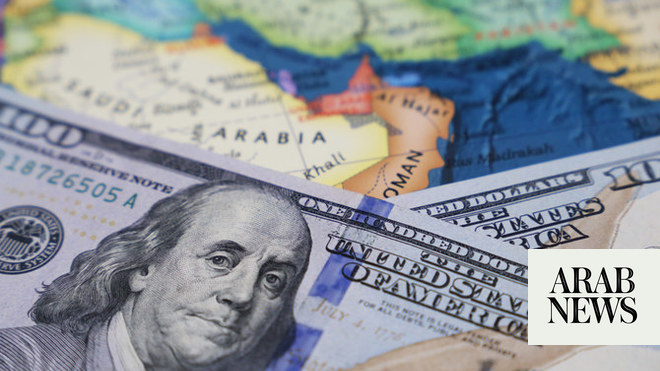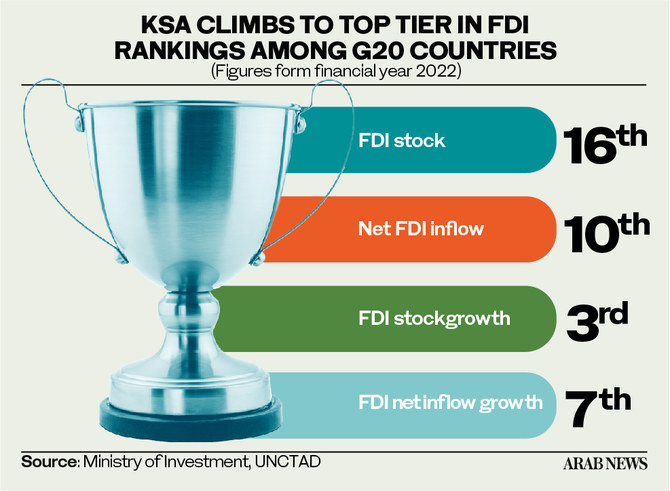
The UN Conference on Trade and Development (UNCTAD) recently published its World Investment Report (WIR) 2019. Published annually since 1991, WIR covers the latest trends in foreign direct investment (FDI) around the world and analyses in-depth select topics related to FDI and development. It is among the most anticipated reports worldwide due to its objectivity and comprehensiveness, which aligns with UNCTAD’s objective: To integrate developing countries into the global economy.
Although the report highlighted that FDI across the world dropped by 13 percent in 2018 to $1.3 trillion, it found that developing countries witnessed a slight uptick of 2 percent. In total, the developing world received 54 percent of global FDI flows, which the report labelled as record-breaking.
The West Asian subregion, which includes the Middle East, saw FDI inflows grow by 3 percent to reach $29 billion, marking the end of a nearly decade-long decline. FDI outflows, meanwhile, reached about $49 billion. These statistics indicate the region’s growing significance to foreign investors as well as its nations’ ability to invest abroad.
The positive role of FDI is perhaps not always as appreciated as it could be given that those controlling the purse strings can often be based thousands of miles away. Greater awareness and understanding of the significant role that FDI plays in the economic development and prosperity of nations is needed. With increased support for overseas investors from our local populations, our region will be even more attractive to international companies looking for growth outside of their home markets.
Greater awareness and understanding of the significant role that FDI plays in the economic development and prosperity of nations is needed
Dr Ali Al-Moulani
The report’s analysis was published at a crucial time for the economies of developing nations, specifically those in the MENA region. Contributing to an increase in job opportunities and availability of hard currency as well as bolstering trade relationships, FDI plays a key role as a tool for accelerated growth and development. The region’s performance is even more remarkable given that the world economy faced a 23 percent drop in FDI during 2017.
Saudi Arabia and Bahrain topped the list of Gulf countries with FDI inflows of $3.2 billion and $1.515 billion, respectively. Bahrain’s 6 percent increase on the previous year is significantly higher than the developing world average, and reflects the Kingdom’s competitiveness and attractiveness as an investment opportunity. This was particularly true in the case of Saudi Arabia, which not only took the lion’s share of FDI into the Gulf, but also accounted for the majority of FDI into Bahrain.
The two countries are closely tied, both figuratively and literally — by the 25 km King Fahd causeway. Non-oil trade between the two countries has flourished, growing by 11 percent from $2.7 billion in 2017 to $3 billion in 2018. Overall, the aggregate value of Bahrain’s non-oil exports rose by an annual 19.3 percent to over $2 billion during the first quarter of 2019, Bahrain"s exports to Saudi Arabia ranked first with 24.2 percent of total non-oil exports. Work on a second causeway is due to begin in 2021.
Indeed, Bahrain’s increased FDI inflows are in large part thanks to its close connection with the region’s largest market. WIR 2019 notes that increased interest in Bahrain’s manufacturing sector from major international companies such as Mondelez played a key role here; the KSA market was undoubtably a major draw for them. Some credit for bringing Mondelez and others to Bahrain must also go to the Bahrain Economic Development Board (EDB) and its strategic partners in the public and private sectors. As reflected in WIR 2019, the additional foreign investment coming into Bahrain boosted the quality of life of the Kingdom’s population through increased growth and job opportunities. As with many Middle Eastern countries, Bahrain’s economy is now more diversified and less reliant on Government-led investment based on hydrocarbon revenues.












